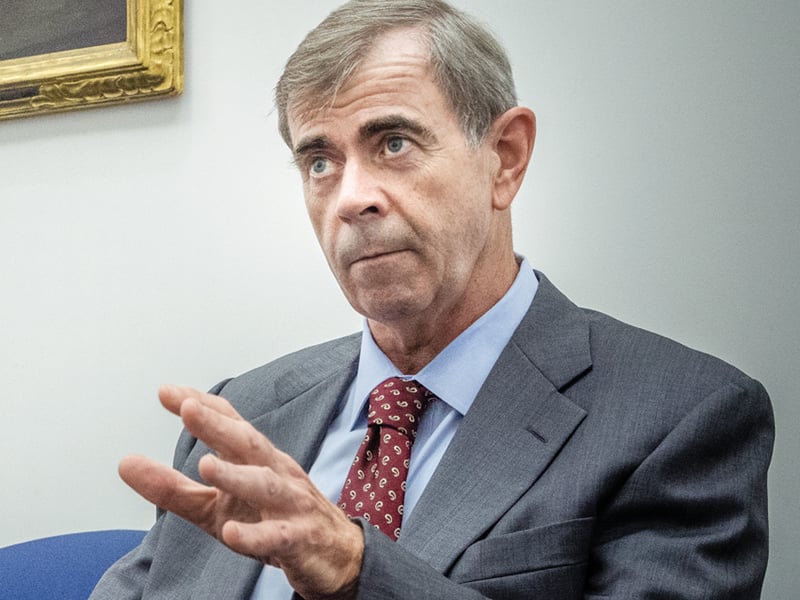The state of Massachusetts Thursday charged Realty Capital Securities, part of RCS Capital Corp., with fraudulently rounding up proxy votes to support real estate deals sponsored by Nicholas Schorsch's AR Capital.
In an administrative complaint, Massachusetts Secretary of the Commonwealth William Galvin said agents of Realty Capital Securities impersonated shareholders and cast fake votes for investment programs sponsored by AR Capital, which is owned by Mr. Schorsch and William M. Kahane. Mr. Schorsch is also a principal shareholder in RCS Capital, or RCAP.
(More: RCS Capital plans to post $307M loss for the third quarter)
RCS is the wholesaling brokerage arm of RCAP, which markets nontraded REITS and other alternative investments.
One of the incidences occurred at the June annual meeting of the Business Development Corporation of America and at another meeting in September of BDCA, where Mr. Schorsch was formerly chairman and chief operating officer.
The September vote was required in order for Apollo Global Management to buy real estate assets from Mr. Schorsch. That deal
fell apart earlier this week, but Apollo did succeed in buying RCS at a reduced price.
Mr. Galvin is seeking to revoke RCS' broker-dealer registration in the state, impose a cease-and-desist order and levy a fine.
(More: CEO Roth to advisers: Cetera has six potential suitors)
“This fraudulent activity corrupts the governance of the targeted corporations,” Mr. Galvin said in a statement. “Votes taken at corporation meetings affect the rights of investors and their votes should count. Any registered entity whose supervision and oversight is so lax as to allow fabricated proxy votes should not be doing business with the Commonwealth.”
In his statement, Mr. Galvin outlined the strong-arm tactics he said RCS used to achieve proxy vote victories.
For example, he alleged that leaders of the firm told its agents to prioritize proxy solicitation calls and that if they did not, they could get fired.
“We need each and every one of you regardless of excuse and circumstance to focus on this all day today … this … is for your own personal well-being … (p)lease don't put me in a position where I'm asking you why you are not working on proxy,” read an email to RCS agents that was cited in Mr. Galvin's statement.
The case is based on details provided by an RCS employee, who described how his colleagues posed as shareholders on proxy calls to cast votes in favor of deals promoted by management.
BDCA paid RCS $375,000 to solicit proxy votes, according to Mr. Galvin.
The statement from Mr. Galvin's office said that although Thursday's complaint focused on two shareholder votes, it believes that RCS fabricated many votes for AR Capital.
RCS spokesman Andrew Backman could not immediately be reached for comment.







